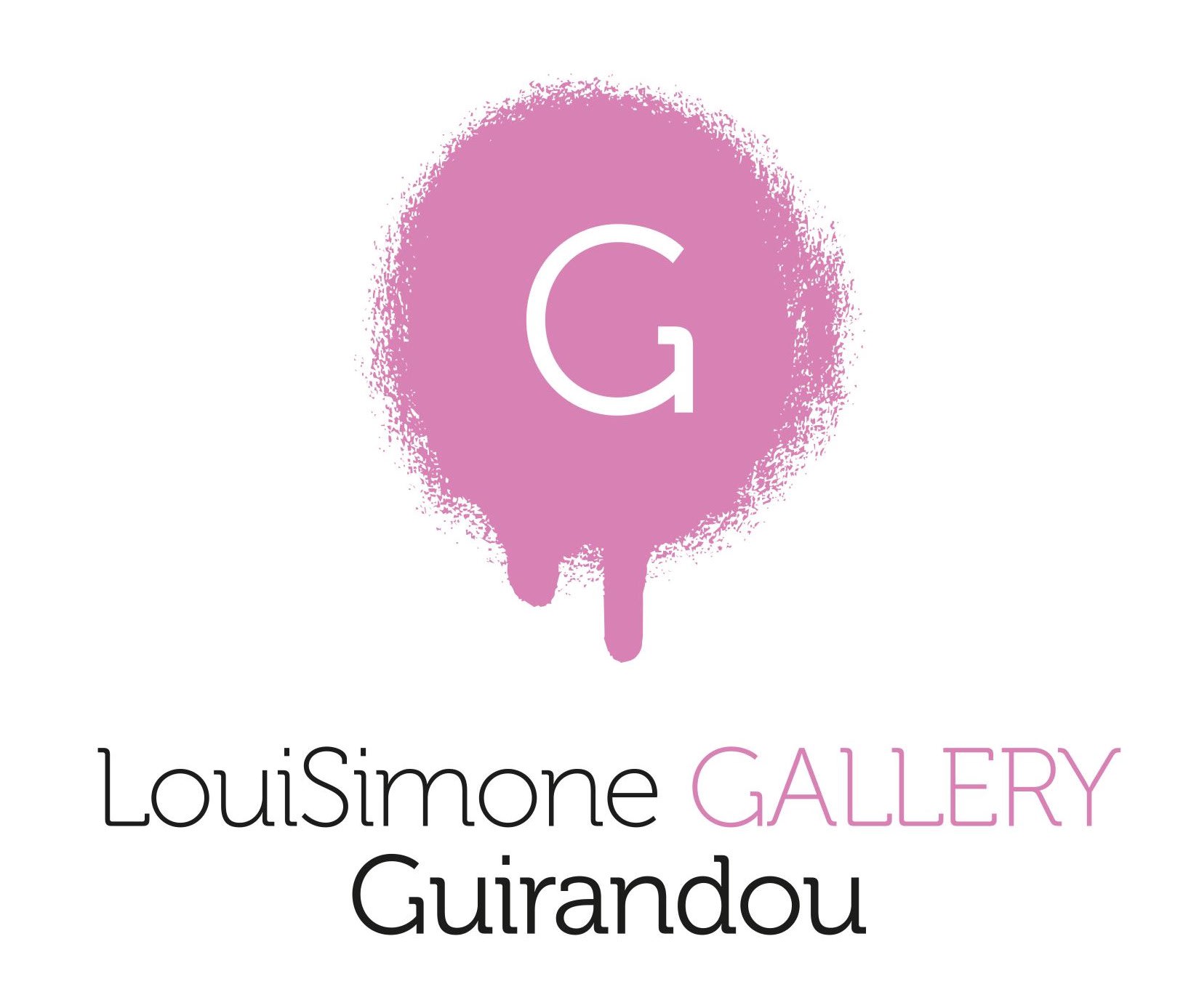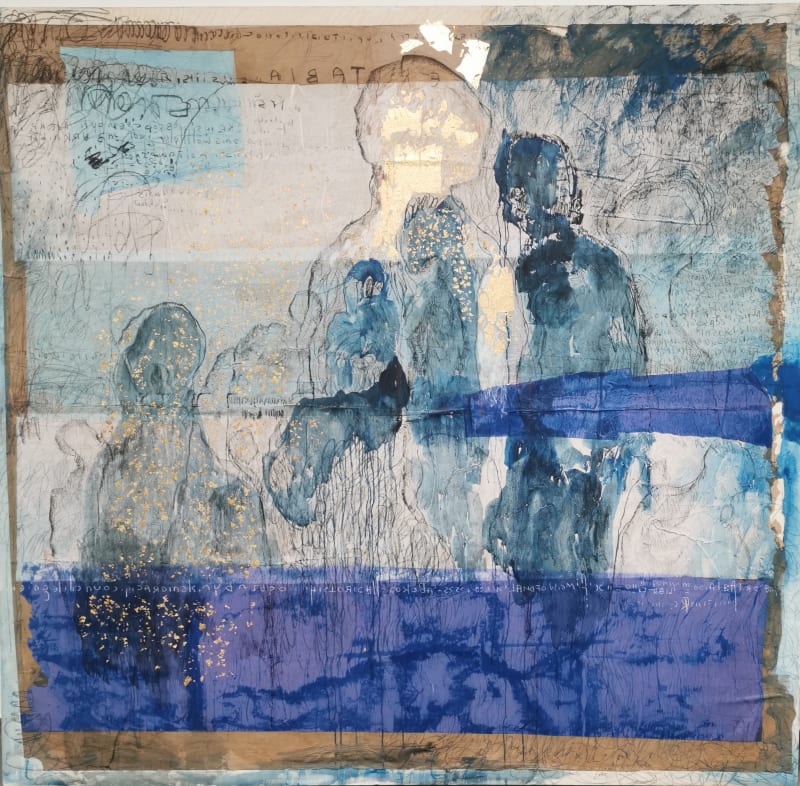Empowered by these experiences, Sess embodies a more rebellious path inscribed in the critical analysis of his society. Being the witness of the erosion of positivism but also the falsification of History, he undertakes his own personal approach.
Sess was born in Toupah (southwest of Ivory Coast), into a well-read, religious and rigorous family. He became a model and pious child, captivated by his father's daily written recording of all events. Through reading and encouraged by his parents, Sess focused his attention on literature and history being also fascinated by the traditional celebrations and rituals of his community to which he is still much attached. Ceremonials of the Catholic religion, music, biblical imageries illustrated in the religious books and in churches’s rich decoration enchanted him.
As a wise and studious child, far from the "bad boy" look that one sometimes uses to describe him, his later confrontation with the urban world of Abidjan will challenge some of his beliefs and partially blunt his convictions. Sess discovers a world that is restless and unbalanced, venal and unjust, and too often violent. He experiences a youth, totally different from the one of the village: a multicultural youth who codifies its diverse universes according to very personal criteria and narratives. Although surprised, Sess opens up to diversity and to the multiplicity of feelings and interpretations! He discovers that, if humanity is an entity, each division is finally founded on individual, cultural or political illusions; that ill-acquired and misunderstood knowledge and instrumentalized ideology divide us and sadly oppose us.
Empowered by these experiences, Sess embodies a more rebellious path inscribed in the critical analysis of his society. Being the witness of the erosion of positivism but also the falsification of History, he undertakes his own personal approach. This philosophical awakening leads him to a more idealized image of life, that of his rural childhood in Toupah.
With these diverse influences and experiences, Sess will move towards a more abstract plastic expression, as he plays with words and forms, questions with no limit other than that of the medium.
This quest for freedom is fully in line with a somewhat baroque catharsis, where a "profound meaning must be the basis of all creation". Sess becomes the undisputed conceptualist of his generation of artists. The use of poetry and writing naturally leads and carries his queries on the essence of an identity to be built, a history to be recomposed and a fundamental and constant criticism of the contemporary urban society. His knowledge, learnings and interpersonal communication are formalized through collages of unusual media or precious materials such as golden leaves; dialogue between forms and signs, whether alphabetical or from ancient traditions, such as the Adinkras, in an exchange with the viewer on his experience and certitudes.
Through a provocative pedagogy, his production set in sequences and episodes aims at dramatizing an imaginary society which symbolizes our world, such as a great parody of the human comedy in which "the economy takes precedence over the politics just as the form prevails over the meaning". Its characters are describeed through caricatures where Men of Plaster represent ordinary people living in the city of Plaster. Exposed to corruption, mediocrity and vices, they converse noisily, gesticulating, creating cacophony and a scrambled vertigo leading to mediocrity... Scribbling! The city of Alabaster is a highly selective place, which shelters nobles and utopians among others. This city is both an idealistic model of society and a compartmentalized sanctuary of the utopians that the most enlightened dream of. The Cardinals are the masters of clocks. Masters of noon, masters of midnight. Immortals, they are the arbiters of this great comedy. 20:20: everything should have been back on track, or on the contrary tipped over into the drift … 21:21 nothing changed, everything seems to have stopped, except for the great chatter that scribbles the whole space.
The Vertigo Jazz series is the fortuitous outcome of these tensions in which we are in search of the "it" as Jack Kerouac would say, of the dissonance in Bach's counterpoint, a rare moment of intimate reconciliation, a moment of plenitude where the chatter is silent in a saving appeasement. Nyansapo (the knot of wisdom) is the Adinkra sign that expresses the outcome of his quest, Silence is Gold, the quietude is finally there, accomplished.
Amédé Regis Mulin

